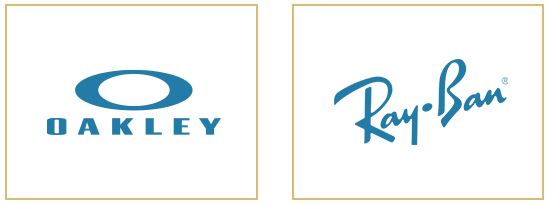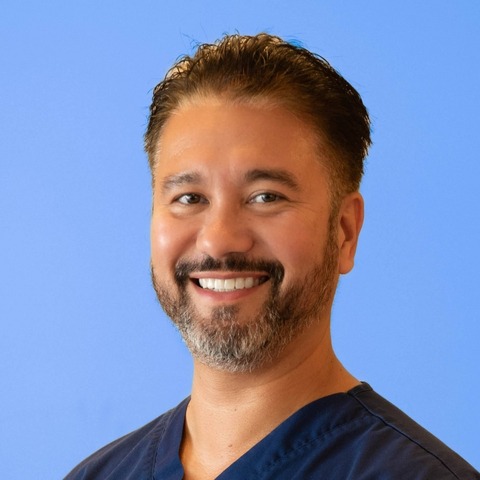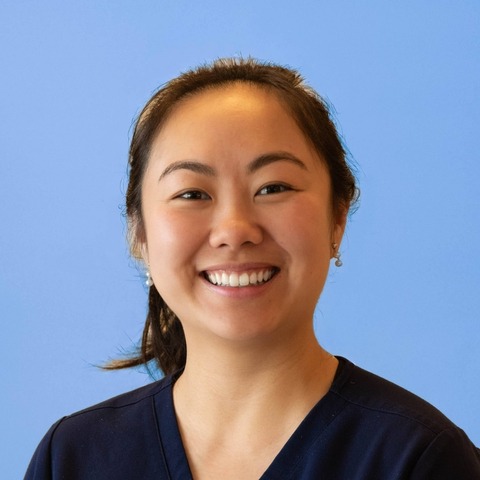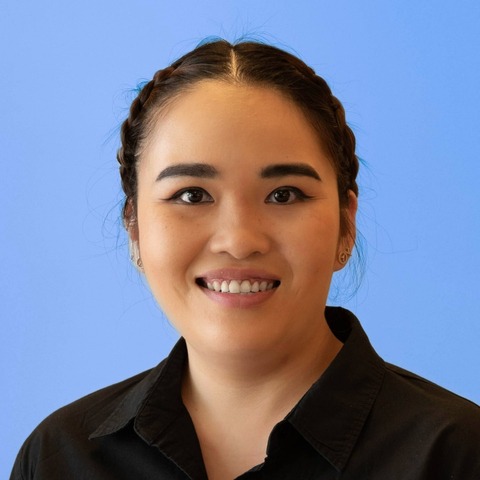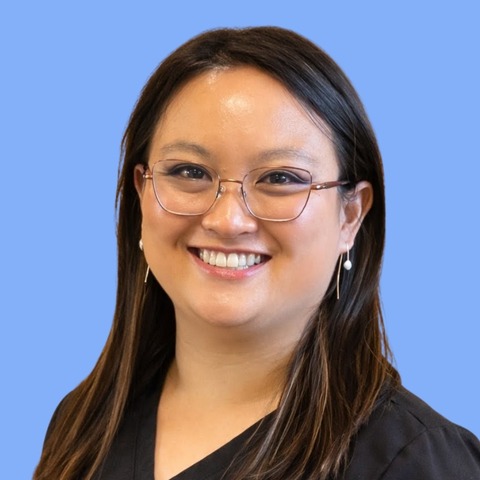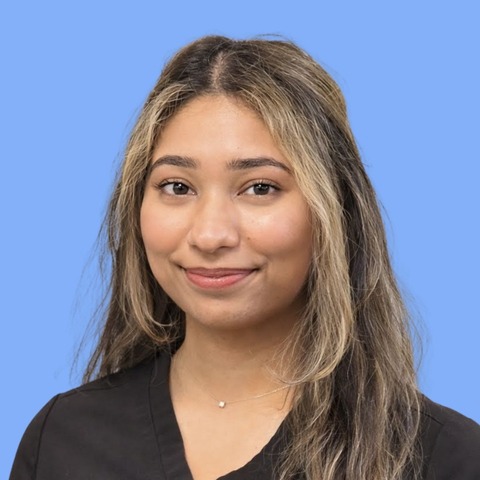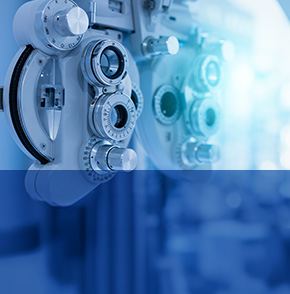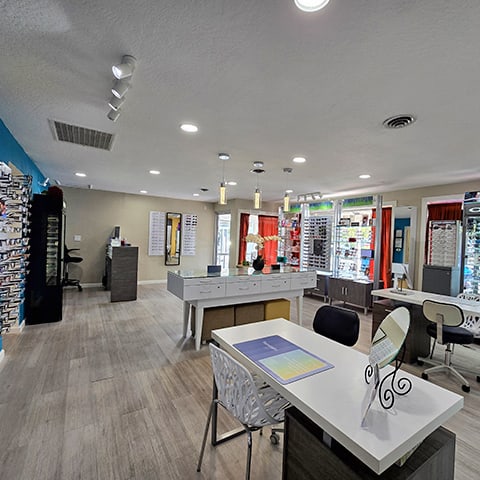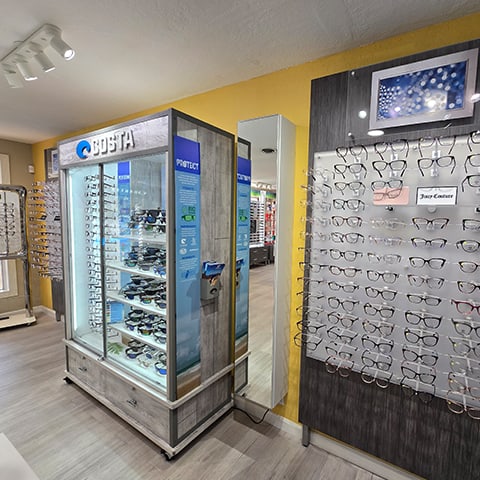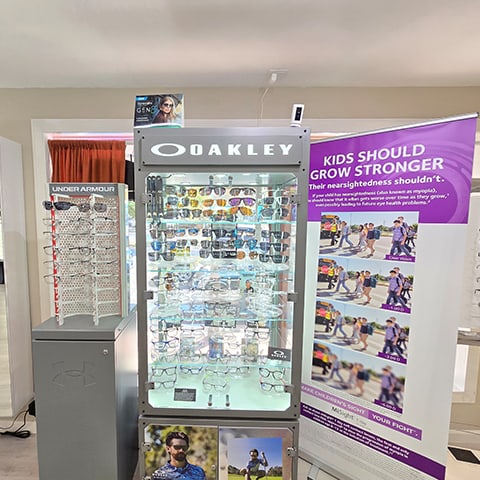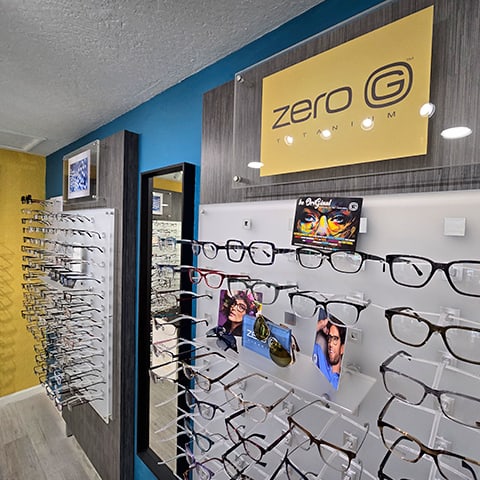A No-Pressure Experience, Focused on Your Needs
Family-focused care and bold eyewear solutions make AccuVision EyeCare Optometry a destination for eye care in Livermore.
We provide personalized, no-pressure care so every patient feels informed and valued. Our team, fluent in both English and Spanish, is dedicated to building long-term relationships with our community.
Our practice offers comprehensive eye exams, contact lens fittings, myopia control for kids, and eye disease management, all with a patient-education-focused approach. We can’t wait to welcome you and your family! Contact us to schedule your appointment today.
Empowering Vision, Enriching Lives
At AccuVision Optometry, our mission is to enhance lives by enhancing vision. We are committed to providing customized eye care solutions, using proven technology and fostering a culture of education. We aim to ensure that everyone who walks through our doors—patients and staff alike—feels like a valued part of our team.
Through integrity, hard work, dedication, and collaboration, we strive to deliver care that meets and exceeds expectations, leading to high patient satisfaction and improved quality of life.
Your Insurance Information
AccuVision EyeCare Optometry works with many insurance carriers and payment plans, including:
- Blue View Vision
- Cigna
- DavisVision
- EyeMed
- Medicare
- MetLife
- Blue Cross (Anthem)
- Blue Shield
- Spectera
- SuperiorVision
- Vision Service Plan (VSP)
- UnitedHealthcare
- Some Kaiser Members with VSP’s Essential Medical Eye Care plan (Please contact our office for details).
Please contact our office to see if we can work with your insurance carrier or vision care plan. Our friendly and informed staff will happily answer any questions you may have.
Check Out Our Current Promotions
Check back regularly to find new ways to save on your eye care and eyewear needs.
Our current promotions:
- Alcon: Current wearer rebate
- Alcon: New wearer premier rebate
- Acuvue: Save up to $350* on select Acuvue contact lenses
- Bausch+Lomb: Receive up to $250 in rewards on your Bausch + Lomb Contact Lenses
- CooperVision: Biofinity® XR toric wearers can save up to $50
- CooperVision: New Wearers can save up to $225* on select contact lenses
- CooperVision: Current Wearers can save up to $200* on select contact lenses
Supporting Local Schools & Families
At AccuVision Optometry, we are committed to giving back to our local community through meaningful partnerships with organizations such as:
- Wood Rose Academy & Preschool
- Myrtle Farm Montessori in Concord
- Queen of All Saints School
- The Walnut Country Swim Team
We believe in fostering a healthy, vibrant community by offering eye health education and personalized care to local families. Through these partnerships, we strive to make a positive difference in the lives of those around us.
Frequently Asked Questions
What is optometry?
Optometry is a specialized healthcare profession that examines and diagnoses various eye conditions and/or defects.
What does an optometrist do?
Optometrists perform comprehensive eye exams to assess vision and eye health. They can prescribe eyeglasses or contact lenses and diagnose and treat eye conditions like glaucoma, macular degeneration, and cataracts.
What are the most common eye conditions optometrists treat?
Optometrists can help with common eye problems like myopia (nearsightedness), hyperopia (farsightedness), and astigmatism. Our optometrists offer myopia control management to help control nearsightedness. Common medical conditions treated by optometrists are glaucoma, macular degeneration, cataracts, and dry eyes.
Can you treat eye emergencies, such as pink eye or eye injuries?
Yes, our optometrists can diagnose and treat many eye emergencies, such as infections or injuries. If you have an urgent eye issue, please contact our office immediately.
Do you offer pediatric eye exams?
Yes, we provide eye exams for children ages 5 years and up to assess their visual development and address any potential issues early.
Do I need an appointment for an eye exam?
Yes, scheduling an eye exam appointment is recommended to receive timely and personalized care.
How often should I have an eye exam?
We highly recommend having an eye exam every year. If you wear glasses or contact lenses, your prescription may change over time, even within a year. Regular eye exams can also help detect eye conditions and diseases in their early stages, or monitor existing eye conditions and diseases.
How long does an eye exam typically take?
A comprehensive eye exam usually takes about 20–40 minutes, but this can vary depending on the complexity of your eye health and vision needs.
What should I bring to my eye exam?
Please bring your current eyeglasses or contact lenses. Before your appointment, we ask that you complete the patient intake form. This allows us to prepare for your appointment in advance, and while you are in the office, our doctors can focus on your specific needs.
What are common signs of eye problems?
Common signs of eye problems or disease can include blurred vision, eye pain or discomfort, redness, dryness, excessive tearing, headaches, and sudden vision changes. If you experience flashes of light, call our office immediately.
What are the signs of a vision problem in children?
Signs may include frequent eye rubbing, squinting, holding objects close, difficulty reading the chalkboard, and complaining of headaches or eye discomfort.
What are the signs of an eye infection?
Signs of an eye infection may include redness, itching, discharge, pain, and vision changes. If you suspect an eye infection, contact our office, and we will schedule you with our experienced team.
Can I buy eyeglasses and contact lenses from your office?
Yes, we offer a wide selection of frames and contact lenses. Our team will help advise you on what frames and lens options are best for your specific lifestyle and needs. They can also help you with fittings and adjustments.
Should I wear blue light glasses?
Whether you should wear blue light glasses depends on your specific needs and lifestyle. Blue light glasses are designed to filter or block some of the blue light emitted from digital screens, smartphones, and other electronic devices.
It’s important to note that the effectiveness of blue light glasses can vary depending on the quality of the lenses and the specific wavelengths of blue light they filter. We can offer you options for quality lenses to protect your eyes from harmful blue light.
How can I protect my eyes from UV radiation?
Wearing sunglasses that block 100% of UVA and UVB rays is essential to protecting your eyes from UV rays that can harm your eyes. We can help you choose appropriate protective eyewear.
Can I get contact lenses even if I have astigmatism or presbyopia?
Yes, there are contact lenses designed for astigmatism (toric lenses) and presbyopia (multifocal or bifocal lenses). Our team can recommend the best option for your needs.
What is myopia control?
Myopia control refers to various methods and treatments for slowing the progression of myopia, also known as nearsightedness.
Myopia typically develops during childhood and can worsen over time, potentially leading to high levels of myopia, which are associated with an increased risk of eye conditions such as retinal detachment, glaucoma, and cataracts.
What are some common methods for myopia control?
Common methods for myopia control include orthokeratology (ortho-K) and atropine eye drops, multifocal contact lenses and glasses, increased outdoor time, and lifestyle modifications like reducing prolonged near-work activities.
-
- Orthokeratology (ortho-k): Involves wearing specially designed rigid contact lenses overnight that reshape the cornea. These lenses are removed in the morning, allowing you to see clearly without glasses or contact lenses throughout the day.
-
- Atropine eye drops: Low-dose atropine eye drops are sometimes prescribed to children to slow the progression of myopia. They work by relaxing the eye’s focusing mechanism, which can help reduce the growth or elongation of the eyeball.
Our myopia control clinic offers these methods. Our team will recommend the most suitable myopia control method based on your needs and circumstances.
How do I get started with myopia control?
To start with myopia control, call our office to schedule an appointment with your optometrist. They will evaluate your eye health and provide personalized advice on myopia control, as each individual’s situation is unique, and treatment plans should be tailored accordingly.
Can I use my medical insurance through my employer for my routine eye exam?
Most patients with a medical plan through their employer will have a medical and vision plan. They are used separately:
-
- You would use your vision insurance for routine eye exams, eyeglasses and contact lenses.
-
- Your medical insurance would be used for non-routine visits, such as eye infections and eye injuries, and appointments for ocular conditions and diseases, such as glaucoma and macular degeneration appointments.
What vision insurance do you accept?
Our office is in-network with VSP and EyeMed Blue View.
What if I do not know what my vision insurance is?
Unfortunately, there is no single system to use to find out what vision insurance you have. The best way to find out your vision plan is to review your benefits packet from your employer or ask your HR department at work.
How do I know what my insurance covers for glasses and contacts?
Every plan is different. Our opticians specialize in understanding what benefits you have for eyeglasses and contacts. At the end of your eye exam, we set aside time for our team to review your coverage with you.
Can I use Medicare for my annual eye exam?
Yes. If you have traditional Medicare insurance, you can use it for your annual exam. However, traditional Medicare only covers the medical portion—the exam evaluation with the doctor. It does not cover the refraction (prescription check), making that an out-of-pocket cost.
Medicare Advantage plans differ from traditional Medicare insurance and supplemental plans. Most Medicare Advantage plans cover the refraction but have a copay for the visit.
Our office accepts traditional Medicare insurance, and most Medicare Advantage PPO plans.
What if I do not have insurance?
We accept privately paid patients. To help those without insurance, we offer discounted package pricing for eyeglasses.
Do you accept Health Savings, such as HSA and FSA?
Yes! Many do not know they can use their HSA or FSA for optical needs. Your HSA or FSA can cover a wide range of optical needs, including:
- Eye exams and copays
- Glasses and contact lenses
- Non-prescription sunglasses
- Eye drops and solutions
- Dry eye treatments (e.g., IPL)
- Myopia control for kids
Take advantage of these accounts while caring for your vision. Need help? Our team is here to guide you!
What payment methods do you accept?
We accept various payment methods, including cash, credit/debit cards, CareCredit, and insurance.
Come Visit Our Team

Our Address
- 2580 Old First St.
- Livermore, CA 94550
Contact Information
- Phone: 925-449-8188
- Email: eyecare@accuvision2020.com
Our Hours
Hours
- Monday: Closed
- Tuesday: 9:00 AM – 5:00 PM
- Wednesday: 9:00 AM – 5:00 PM
- Thursday: 9:00 AM – 5:00 PM
- Friday: 9:00 AM – 5:00 PM
- Saturday: 9:00 AM – 2:00 PM
- Sunday: Closed
Our Brands
Our Collection of Brands

